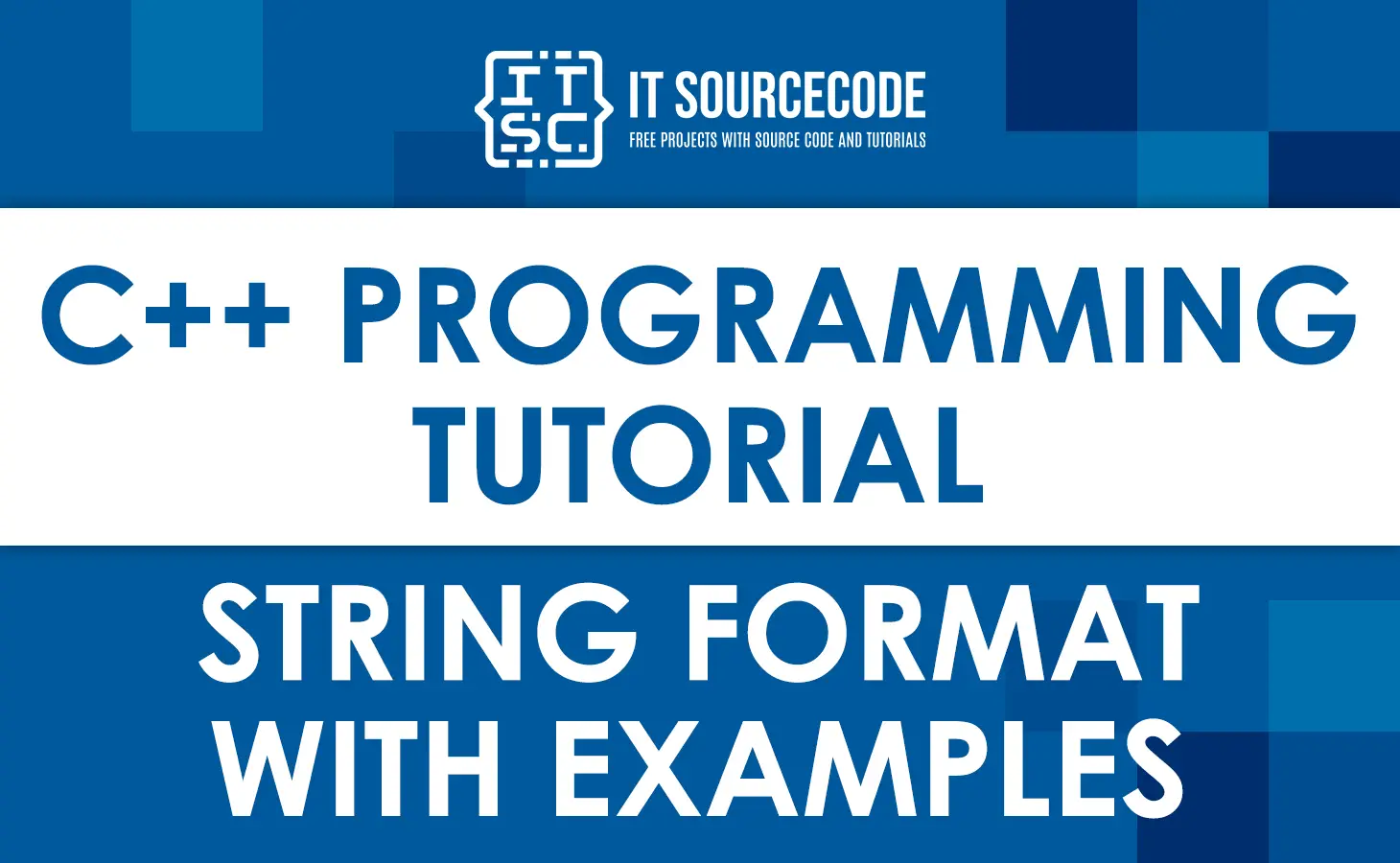C++ String Format – C++ has had multiple attempts to bring text formatting to the language throughout its 40 years of history.
The first attempt was the printf() family of functions inherited from C.
std::printf("C++ is %s/n", "FUN!");The printf function is well known for being concise and fast. It was so successful that debuggers and IDEs have integrated printf-like APIs.
The prototype of printf is defined in the <cstdio> header file.
#include <cstdio>
int printf(const char * format, ...);printf() and related functions have a simple API but only work with built-in C types(int, const char*, strings, etc).
This can lead to type-safety issues and makes the multi-argument API based on varargs difficult to use.
People later started working on alternatives to the C programming language’s IO APIs that would be more type-safe and allow for the integration of user-defined types.
This work would eventually result in the creation of the standard <iostream> library.
const std::string fun{"FUN"};
std::cout << "C++ is" << fun << std::endl;It has better type safety and extensibility, but it is slow and has some bad design decisions. It also has an odd obsession with chevrons.
std::cout << "This "
<< "is "
<< certainly()
<< " not verbose "
<< *in_any_way
<< std::endl;C++20 will introduce a new text formatting API called the formatting library <format>. This library aims to provide a simpler alternative to streams while addressing some of the issues with printf().
Formatting Library <format>
<format> is based on placeholders and provides support for indexed parameters and format specifications.
It also formats and works for all types of text, using different templates to support multiple arguments.
It supports user-defined types using individualized formatters.
The std::format class was added to C++ as part of the C++20 standard. Unless you compile it with C++20, std::format, it will not be available. If you insist on using the namespace std, an error will occur.
The format library’s main function is std::format() which formats the specified parameters and returns a string:
#include <format>
int main()
{
const std::string sample_message = std::format("{} {}!", "C++ is", "FUN");
}Placeholders can be indexed for rearranging arguments or repeating them.
For example, the two calls below both return "C++ is FUN!":
std::format("{1} {0}!", "FUN", "C++ is");
std::format("C{0}{0} is {1}!", "+", "FUN");
In addition to std::format(), the library contains std::format_to(), which writes the result string into an iterator.
This is useful for dumping formatted strings into iterator-based storage, like a file:
std::ofstream file{"MyFile.txt"};
std::format_to(std::ostream_iterator<char>(file), "C++ is {}!", "FUN");or a container:
std::vector<char> buffer;
std::format_to(std::ostream_iterator<char>(buffer), "C++ is FUN!");The format API supports all types, as long as a formatter is available for them.
There are predefined formats for built-in types, so in most cases, it will just work.
#include <iostream>
#include <chrono>
#include <format>
const std::string sample_countdown =
std::format("{} days left till Christmas!", std::chrono::days(26));Formatters return a string representation of a value and allow customizing the output.
Each type formatter has its own set of specifiers. For example, the floating-point formatter has a precision config:
// Save Planck's constant as a string that is accurate to three decimal places:
const std::string planck = std::format("{:.3f}", 6.62607015);Declaration
The format()
template< class... T >
std::string format( const std::locale& local, format, const T &... param );
// OR
template< class... T >
std::wstring format( const std::locale& local, format, const T &... param );
param: The strings are getting formatted.format: The format string that was appliedparamin order to format it. This is a parameter of unspecified type.local: This is an optional parameter that is used for formatting that is specific to thelocale.
Return Value
C++ format() returns value:
- If successful, it returns the total number of characters or a string with the param argument formatted as format.
- The error indication (
ferror) is set, and a negative integer is returned if a writing error occurs.
Exceptions
If the allocation fails, std::bad_alloc is thrown. Exceptions thrown by any formatter are also passed on.
Example 1:
#include <iostream>
#include <format>
int main() {
std::format("Did you know that {} {}!", "C++", "is FUN", "Hello World");
}Explanation:
The example above explains that it is not an error to give more arguments than what the format string needs.
Output
Did you know that C++ is FUN!Example 2:
#include <iostream>
#include <format>
int main() {
std::format("{0} is living in a very nice {1}, {0} thinks that she is in paradise!", "Grace", "Castle");
}Explanation:
We can index placeholders to change the order of the arguments or even repeat them. Both of these calls return "Grace" and "Castle".
Output:
Anna is living in a very nice Castle, Anna thinks that she is in paradise!Example 3:
#include <iostream>
#include <format>
int main() {
std::cout << std::format("Greetings {}!! \n", "Prince");
std::cout << std::format("I do {0} and I am {1} years old. \n", "Programming", "24");
}Explanation:
The string "Prince" is represented by the symbol {}, which is a placeholder. The string "Prince" is substituted for {} at runtime. "Programming" is substituted for {0} and "24" is substituted for {1} at runtime.
Output:
Greetings Prince!!
I do Programming and I am 24 years old.So far all the examples involved string arguments, but the format API supports all types, as long as a formatter is available for them. Formatters are available for built-in types like int, bool, std::string, and std::chrono::duration.
Summary
In summary, the C++ String format is a placeholder-based formatting syntax and formatting that is type-safe, utilizing variable templates for multiple argument support.
Support for custom formatted for user-defined types. I hope you understand what is String format using C++ Programming and how to use it properly.

